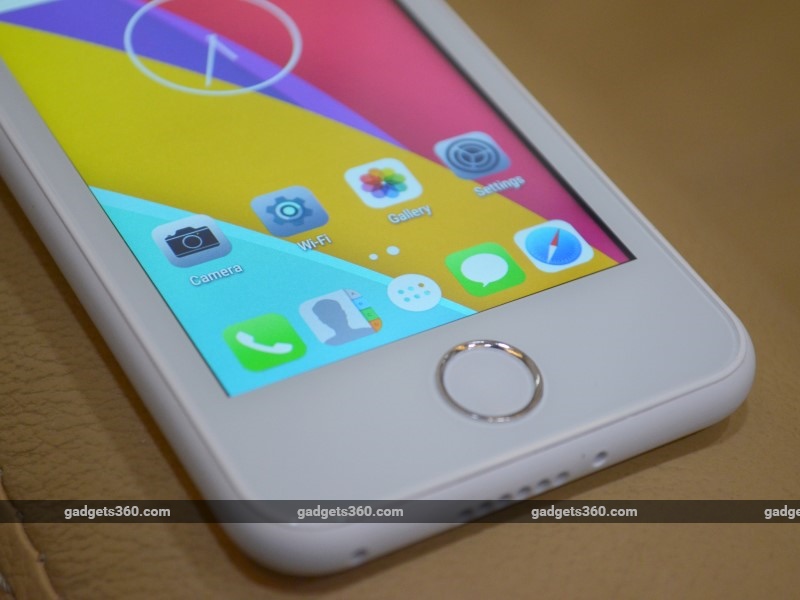- Home
- Mobiles
- Mobiles News
- Freedom 251 Now Ringing Alarm Bells Over Workers' Conditions
Freedom 251 Now Ringing Alarm Bells Over Workers' Conditions

But labour rights campaigners worry that push to churn out cheap handsets and tablets may lead to greater abuse of workers' rights in India, the world's fastest-growing smartphone market.
Ringing Bells' Freedom 251 smartphone, whose launch in February crashed the company's website, is priced at Rs. 251 - possibly the cheapest Android smartphone in the world.
On Thursday, the company's chief executive Mohit Goel said the first shipment of about 200,000 handsets was due next week.
(Also see: Freedom 251 Maker Says Deliveries Delayed, Will Now Start From July 6)
Ringing Bells pays fair wages to its workers and its pricier models will help offset the cost of the $4 phone, he added.
"Our vision is to make mobile phones more affordable to the millions of poor Indians who do not own one," Goel told the Thomson Reuters Foundation.
India sold 103 million handsets last year, an increase of 29 percent on the year before.
With only one in 10 Indians owning a mobile phone, there is enormous potential - much of it at the lower end of the market where dozens of local and foreign brands are vying for customers with some handsets selling for less than $25 (roughly Rs. 1,600).
However, the pressure to keep costs low is pushing manufacturers to pay low wages, rely on cheaper contract labour and insist on unpaid overtime, activists say.
"Responsibility of the supply chain and workers lies with brand companies," said Gopinath Parakuni, general secretary at Cividep, a workers' rights campaign group.
"Our regulations simply aren't strong enough to ensure workers in the electronics industry are taken care of," he said.
'Who pays the price?'
Last month Cividep and Amsterdam-based GoodElectronics issued a report on Samsung Electronics, the leader in India's mobile market, which found that Samsung workers were poorly paid with no way to effectively have their grievances addressed.
A Samsung India spokesman said the company complies by all relevant labour laws and regulations wherever it operates.
"Fairness and respect for all are the values that form the foundation of our business," the spokesman said in a statement.
While most of the 100-odd phone companies in India largely import from China and Taiwan, companies are increasingly heeding Prime Minister Narendra Modi's call to "Make in India", an initiative launched in 2014 to emulate China's export miracle.
(Also see: Freedom 251 in Pictures)
Chinese phone maker Xiaomi rolled out its first locally made smartphones last year from a facility in the southern Indian state of Andhra Pradesh.
The "Make in India" drive to boost manufacturing is aimed at luring more investment, raising economic growth and creating jobs in industries such as electronics and apparel.
But these efforts lack sufficient checks and balances for millions of workers who face archaic labour laws, low wages, few benefits and little job security in businesses that often flout laws on safety or underage workers, activists say.
In India's electronics industry, working conditions are "among the worst", according to a 2013 report by Hong Kong-based labour rights non-profit Asia Monitor Resource Centre.
Not all efforts to produce cheap electronics have been successful. In 2008, the Indian government unveiled a $10 (roughly Rs. 675) laptop that ended up costing more than $100 (roughly Rs. 6,745), while a $20 (roughly Rs. 1,350) Android tablet sold through a subsidy scheme failed to capture significant market share.
"Companies like to say cheap phones and computers is about digital empowerment and democracy," said Raphel Jose at the Centre for Responsible Business in New Delhi.
"But we must stop and ask, 'what is the real cost of these cheap devices? Who pays the price?' Cheap is not always good," he said.
© Thomson Reuters 2016
For the latest tech news and reviews, follow Gadgets 360 on X, Facebook, WhatsApp, Threads and Google News. For the latest videos on gadgets and tech, subscribe to our YouTube channel. If you want to know everything about top influencers, follow our in-house Who'sThat360 on Instagram and YouTube.
Related Stories
- Galaxy S24 Series
- MWC 2024
- Apple Vision Pro
- Oneplus 12
- iPhone 14
- Apple iPhone 15
- OnePlus Nord CE 3 Lite 5G
- iPhone 13
- Xiaomi 14 Pro
- Oppo Find N3
- Tecno Spark Go (2023)
- Realme V30
- Best Phones Under 25000
- Samsung Galaxy S24 Series
- Cryptocurrency
- iQoo 12
- Samsung Galaxy S24 Ultra
- Giottus
- Samsung Galaxy Z Flip 5
- Apple 'Scary Fast'
- Housefull 5
- GoPro Hero 12 Black Review
- Invincible Season 2
- JioGlass
- HD Ready TV
- Laptop Under 50000
- Smartwatch Under 10000
- Latest Mobile Phones
- Compare Phones
- Vivo V30e
- Itel Super Guru 4G
- Huawei Pura 70 Pro+
- Huawei Pura 70 Ultra
- Tecno Camon 30 Premier 5G
- Motorola Edge 50 Fusion
- Oppo A1i
- Oppo A1s
- Asus ZenBook Duo 2024 (UX8406)
- Dell Inspiron 14 Plus
- Realme Pad 2 Wi-Fi
- Redmi Pad Pro
- Cult Shock X
- Fire-Boltt Oracle
- Samsung Samsung Neo QLED 8K Smart TV QN800D
- Samsung Neo QLED 4K Smart TV (QN90D)
- Sony PlayStation 5 Slim Digital Edition
- Sony PlayStation 5 Slim
- Voltas 1 Ton 5 Star Inverter Split AC (125V Vectra Elite)
- Voltas 1.5 Ton 3 Star, Inverter Split AC (183V Vertis Emerald 4503563)

















